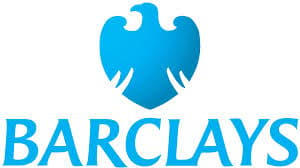Best Joint Bank Accounts UK 2025: Expert Comparison
Our expert guide compares the best joint bank accounts in the UK to help you find the best option for your needs.
Published:
When you purchase through links on our site, we may earn an affiliate commission. Here's how it works.

Managing shared finances with someone else (like a partner, spouse, roommate, or family member) can be complex, from splitting expenses to tracking who paid what.
A joint bank account simplifies this by giving both people access to the same account, making it easier to manage payments, monitor spending, and stay organised.
To help you find an option for your needs, we’ve reviewed the best joint bank accounts in the UK for 2025, comparing fees, features, accessibility, customer service, and more. From the best joint bank account for couples and the best high-yield savings joint accounts to the best joint bank account for parents and kids, we’ve got you covered.
5 best joint accounts in 2025 compared
Here’s how 5 of the best joint accounts in the UK stack up against each other:
Bank & account name | Best for | Our expert score | Monthly fee | Key benefits | FSCS protection | Type of use |
Nationwide FlexPlus | Rewards and perks | 4.7/5 | £18 | Travel, mobile, and breakdown insurance for family; no foreign transaction fees; access to savings accounts | Yes | App, online banking, in-person |
Santander Edge Up | Cashback | 4.6/5 | £5 | 1% cashback on bills & essentials; 3.00% AER interest; no foreign transaction fees; Santander Boosts | Yes | App, online banking, in-person |
Lloyds Smart Start | Parents and kids | 4.6/5 | £0 | For ages 11–15; parent-child access; savings & spending in one; 2.85% AER interest | Yes | App, online banking, in-person |
Monzo Joint Account | Budgeting | 4.6/5 | £0 | Budgeting tools; shared pot; real-time alerts; 3.50% AER on savings; no foreign | Yes | Mobile app only |
transaction fees | ||||||
Barclays Basic Bank Account | Basic banking | 4.5/5 | £0 | Simple setup; no overdraft (safe for budgeting); access to full Barclays network | Yes | App, online banking, in-person |
1. Nationwide FlexPlus – Best joint bank account for rewards and perks

Our expert score: 4.7/5
Pros
- Includes worldwide family travel insurance, family mobile phone insurance, and UK and European vehicle breakdown cover
- No charges for using your card abroad or for non-sterling transactions
- £50 interest-free on an arranged overdraft (subject to eligibility)
Cons
- £18 monthly account fee
- 39.9% APR (variable) on overdrafts beyond the interest-free allowance
Nationwide, whose roots date back to 1884, is the UK’s largest building society. It offers various financial products, including current accounts, mortgages, savings products, loans, and insurance. As a member-owned organisation, Nationwide focuses on delivering value to its customers through competitive products and service offerings.
One such offering is the Nationwide FlexPlus current account, available as both a solo and a joint account. The account has a monthly fee of £18; in exchange, holders get a comprehensive rewards package that includes worldwide family travel insurance, mobile phone insurance for your entire family, and breakdown cover in the UK and Europe.
The account also provides access to Nationwide’s exclusive savings accounts, such as the Flex Regular Saver and Flex Instant Saver, both of which offer competitive interest rates. Additionally, there are no charges for using your Nationwide debit card abroad or for transactions in currencies other than British Pounds Sterling (GBP).
Why buy? Expert verdict
The Nationwide FlexPlus account is an excellent option for those comfortable paying a monthly fee in return for several valuable extras.
The £18 monthly fee covers three policies—travel insurance, mobile phone insurance, and breakdown cover—that many couples already pay for, but whose total cost exceeds the account fee when purchased individually. In fact, for families taking just one international trip per year, the travel insurance benefit alone more than justifies the monthly charge.
Additional perks like fee-free overseas spending, a £50 interest-free overdraft, and access to exclusive savings accounts further enhance the overall value and attractiveness of the Nationwide FlexPlus joint account.
✍️ Have you used this bank? Share a rating and review for Nationwide on Review Centre.
2. Santander Edge Up Account – Best joint bank account for cashback

Our Expert Score: 4.6/5
Pros
- Cashback on household bills and essential spending
- No foreign transaction fees when using the card abroad
- Access to Santander Boosts for perks and rewards like vouchers, tailored offers, and prize draws
Cons
- £5 to maintain the account
Santander is one of the largest retail and commercial banks in the UK, currently serving more than 14 million customers. It operates an extensive branch network nationwide and offers a wide range of personal, business, and corporate banking services.
The Santander Edge Up current account, available as an individual and a joint account, is one of the bank’s flagship products.
For a £5 monthly fee, users earn 1% cashback on eligible direct debit payments for household bills (like energy, broadband, and mobile contracts) and debit card spending at supermarkets and travel. Each spending category has a monthly cashback cap of £15, resulting in a potential total of £30 cashback per month.
The account also pays a monthly interest of up to 3.00% AER on account balances up to £25,000 and includes access to the exclusive Santander Boosts for additional rewards and discounts. Furthermore, there are no foreign transaction fees when using the Santander Edge Up debit card abroad.
To unlock the account’s full benefits, you must deposit at least £1,500 per month and have two active direct debits set up.
Why buy? Expert Verdict
The Santander Edge Up is one of the best joint bank accounts for couples or housemates looking to manage shared expenses while earning cashback. Unlike some joint accounts that only offer cashback on bills or spending, the Edge Up account gives you rewards on both.
The potential £360 per year in cashback and interest earned on in-credit balances can easily outweigh the £60 annual fee. For couples who frequently travel, the lack of foreign transaction fees further enhances this account’s appeal, allowing money to go further when spending internationally.
✍️ Have you used this bank? Share a rating and review for Santander on Review Centre.
3. Lloyds Smart Start Account – Best bank account for parents and kids

Our expert score: 4.6/5
Pros
- Designed for 11–15-year-olds, with shared access for parents
- No monthly fees
- Comes with a contactless debit card and access to the Lloyds Mobile Banking app
Cons
- No overdraft
- Requires a parent or guardian to have a Lloyds personal current account
Lloyds Bank is a long-standing British banking institution, founded in 1765. It serves over 27 million customers and operates hundreds of branches across the UK. As part of Lloyds Banking Group, which includes other well-known brands like Halifax and Bank of Scotland, Lloyds offers a broad range of personal and business banking products.
The Smart Start account provides 11–15-year-olds with a spending and saving account in one application. It’s jointly owned by a parent or guardian, who must also have a Lloyds current account. It doesn’t charge fees and offers a full UK current account experience, including a contactless Visa debit card and online and mobile banking. Parents can track their children’s transactions and balances through their own Lloyds banking app.
The savings component of the account offers a variable interest of up to 2.85% AER on balances of £1–£1,000 and 1.15% AER on all other balances beyond this amount.
Why buy? Expert Verdict
The Lloyds Smart Start account is excellent for parents who want to introduce their children to real-world money management without relinquishing oversight.
With this account, children get a complete banking experience (including debit cards and mobile banking access) plus the freedom to manage their spending and savings. Crucially, it also ensures parents can stay informed and involved in their child's financial activities.
✍️ Have you used this bank? Share a rating and review for Lloyds Bank on Review Centre.

Our expert score: 4.6/7
Pros
- In-app budgeting features, including spending categories and shared savings pots for joint expenses
- Real-time spending notifications
- Allows easy splitting of bills within the app
- No fees for using your Monzo card abroad
Cons
- Overdrafts are not available on joint accounts
- Primarily app-based banking experience may not suit everyone
Founded in 2015, Monzo is a digital-first bank based in the UK. It has rapidly grown in popularity due to its user-friendly mobile app and innovative approach to banking.
The Monzo Joint current account is designed to streamline shared finances, making it ideal for partners, housemates, or anyone managing joint expenses. Each account holder receives their own debit card for shared spending.
However, both applicants must already have a Monzo personal account to be eligible for the joint account.
Why buy? Expert verdict
Monzo offers an impressive suite of tools that make budgeting feel effortless. Every transaction from the joint account is automatically categorised, giving both account holders instant visibility into spending patterns. You can set spending limits across categories and get real-time notifications when you’re nearing those limits, helping everyone stay on track.
Monzo also makes splitting shared expenses painless. You can split bills and payments directly from the joint account or retroactively request a share from your partner’s personal Monzo account. Monzo also lets you create an Instant Access savings pot within your joint account to set money aside for shared goals or recurring expenses, like rent, holidays, or emergencies.
Additionally, you can earn 3.50% AER on combined savings through the Instant Savings Pot within the joint account. Users also benefit from fee-free international spending and access to 24/7 customer support directly through the app.
✍️ Have you used this bank? Share a rating and review for Monzo on Review Centre.
5. Barclays Basic Bank Account – Best for basic banking

Our expert score: 4.5/5
Pros
- No monthly fee
- Access to the Barclays app, online banking, and telephone banking
- Visa debit card or cash card
- 24/7 support through Barclays’ branch network and customer service
Cons
- No overdraft facility or cheque book
Barclays is a well-established British bank with a history dating back to 1690. In the UK, the bank serves millions of customers through a network of branches, online, and mobile banking platforms. It offers a wide range of financial products and services, including current accounts, savings, mortgages, loans, and credit cards.
The Barclays Basic Bank Account, which one can open as an individual or joint account, targets those seeking a no-frills banking solution. It doesn’t charge fees and provides essential banking services such as a Visa debit card, access to the Barclays app, online banking, and the ability to set up regular payments like Direct Debits and standing orders.
Customers can also withdraw up to £300 daily from ATMs, provided funds are available in the account.
However, the account doesn’t include a cheque book or overdraft protection.
Why buy? Expert verdict
The Barclays Basic Account is a straightforward and accessible banking solution for individuals who may not meet the criteria for a standard current account or prefer a simple way to manage their money.
While it doesn't offer all the features of standard bank accounts, it still delivers essential banking services, including a Visa debit card and comprehensive digital banking access, ensuring users have access to modern financial tools. The £300 daily cash withdrawal limit is also sufficient to cover most basic needs.
✍️ Have you used this bank? Share a rating and review for Barclays on Review Centre.
Types of joint accounts
There are 3 primary types of joint bank accounts in the UK.
Standard joint bank account
Standard joint bank accounts are the most common type of joint bank account. They offer the essential features most people need for everyday banking, including debit cards, online and mobile banking, and overdraft facilities (subject to approval).
Packaged joint bank accounts
These accounts offer extra perks on top of the standard features, in exchange for a monthly fee. These perks may include travel insurance, mobile phone insurance, breakdown cover, cashback on purchases, or access to exclusive deals. Packaged joint bank accounts make financial sense when the value of the included benefits outweighs the monthly fee.
Basic joint bank accounts
Basic joint accounts are stripped-back versions of standard accounts. They target people who don’t meet the eligibility criteria for the latter (perhaps due to poor credit) or those seeking a simple joint banking solution. Basic accounts offer essential services like receiving payments and paying bills, but often lack features such as overdraft facilities or cheque books.
What type of joint bank account do I need?
The right joint bank account for you and fellow holder(s) depends on your financial goals, priorities, and lifestyle.
If your primary goal is simple, everyday money management for shared expenses, a standard joint current account offers the necessary features and flexibility.
If you and the other account holder(s) already pay for services like travel insurance or breakdown cover, a packaged joint current account could offer better value by bundling these benefits for a single monthly fee. Just ensure the monthly fee aligns with the benefits you’ll actually use.
Lastly, a basic joint bank account could be the right choice if one or all account holders have a less-than-perfect credit history or if you prefer a minimalistic account for basic financial tasks without the risk of overspending through an overdraft.
How do joint bank accounts work?
Never opened or used a joint bank account before? Here’s what you need to know about how they work.
Who can open a joint current account?
Generally, any two or more people aged 18 or over can open a joint bank account together. There’s no requirement to be related, and the most common pairings are couples, family members (like parents and adult children), or housemates sharing living expenses. All applicants must meet the bank's standard eligibility criteria, including proof of identity and address.
- Convenience for shared experiences: Joint bank accounts simplify the process of paying for shared expenses, including bills, rent, and groceries. They limit the need for frequent transfers between individual accounts.
- Transparency and visibility: These accounts promote transparency between people with shared financial interests (like married couples) since all holders can view the transactions and balance.
- Simplified budgeting: Pooling money into one account for shared expenses can make budgeting and expense tracking much more straightforward.
How to open a joint banking account
The process of opening a joint bank account is similar to opening an individual account, with the key difference being that all applicants must apply together.
Here's a general outline of the steps involved:
- Choose a bank and account type: Research different banks and their joint account offerings, considering factors like fees, features, and convenience.
- Gather required documents: Each applicant must provide proof of identity (such as a passport or driving license) and proof of address (like a utility bill or bank statement from another account).
- Complete the application: Fill out a joint application form online or in person at a branch.
- Verification and account activation: The bank will review the application and, if everything is in order, approve and activate the account. You’ll receive your account details, followed by debit cards a few days later.
💡 Pro tip: If one person already holds an individual account with the bank, it’s often possible to convert it into a joint account with most banks. Consult the bank directly for specific instructions on how to do this.
Who are the biggest joint bank account providers in the UK?
The UK has many banks, including high-street and digital banks that offer joint current accounts. Here are some of the most trusted and widely used options.
- Barclays
- Lloyds Bank
- First Direct
- HSBC
- Santander
- NatWest
- Nationwide
- Halifax
- TSB
- Monzo
- Starling Bank
How to choose the best joint bank account
Before picking a joint bank account to open, consider these factors:
Features and functionality
Do you need cheque books? How important is mobile and online banking functionality for you and your fellow account holders? What about other perks like cashback or rewards? Choose an account that provides the tools and services you need for convenient money management.
Account fees
Consider any monthly maintenance fees, transaction fees (especially for international transfers or withdrawals), and charges for using an overdraft. The best joint accounts offer transparent and competitive fee structures that align with your anticipated usage.
Customer service and accessibility
Research the provider’s reputation for customer service. Consider their accessibility through various channels (e.g., phone, online chat, in-branch) and read reviews on sites like Review Centre to gauge their responsiveness and helpfulness.
Interest rates and savings features
Some joint bank accounts offer a chance to earn interest on balances, although this is more common in savings accounts. If you want to grow your balance over time, seek out accounts offering competitive interest rates.
How we created this list
The joint bank accounts featured in this guide were selected through thorough research and evaluation based on several essential factors. Our goal was to help you make an informed decision by highlighting options that provide excellent value, ease of use, and a strong customer experience. Below are the key criteria we used in selecting and reviewing these accounts.
Account features and benefits
We assessed what each joint account offers in terms of everyday banking functionality. This includes the availability of debit cards for both account holders, digital tools like mobile apps for easy account management, overdraft, and account-specific perks like cashback, rewards, and interest on balance.
Fees and charges
We examined the fee structures for each joint bank account. This included an analysis of monthly maintenance fees, charges for using overdraft facilities (including interest rates and arrangement fees), transaction fees for services like foreign currency withdrawals or transfers, and potential charges for account closure or inactivity. We made sure to highlight only providers or accounts with transparent and competitive fee structures.
Accessibility and customer service
We evaluated how easy it is for multiple individuals to open and manage a joint bank account with each provider. This included the availability of online applications, branch access for in-person support (if applicable), and the quality of customer service across channels like phone, email, and live chat. We also reviewed customer feedback and ratings to assess overall satisfaction and reliability.
Security and reputation
We only considered FSCS (Financial Services Compensation Scheme)-protected banks and building societies regulated by the Financial Conduct Authority (FCA). We also took into account how long each provider has been operating, its stability, and its overall reputation in the UK banking sector.
Joint current accounts FAQS
Is there a downside to having a joint bank account?
Yes. Both account holders have equal access to the funds, which can lead to disagreements if there’s a lack of trust or communication. Additionally, both parties are equally responsible for overdrafts or debts, meaning one person's spending could affect the other's finances or credit.
What happens to a joint bank account if one person dies?
If one of the holders passes away, the other assumes control of the account.
Can one person withdraw all the money from a joint account?
Yes, unless the account has specific restrictions (like requiring dual authorisation for withdrawals), any joint account holder typically has the right to withdraw all available funds.
Conclusion
A joint bank account can simplify how you manage shared finances, but it’s essential to choose one that matches what you and your co-account holder want from such a solution.
Our guide has highlighted the top providers for different priorities and needs, plus the key factors to consider when comparing options. Use it to narrow your choices and find your ideal joint account.
